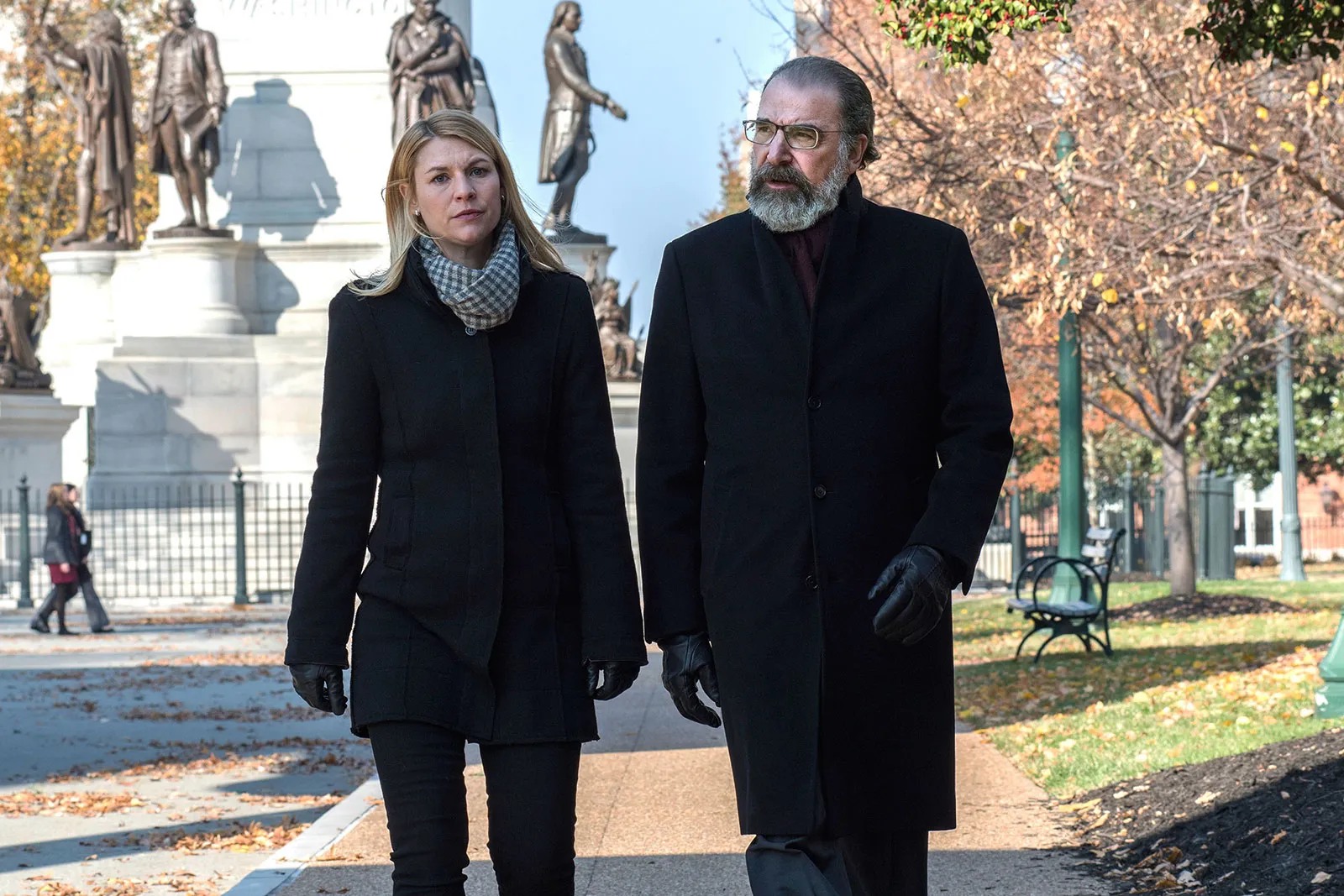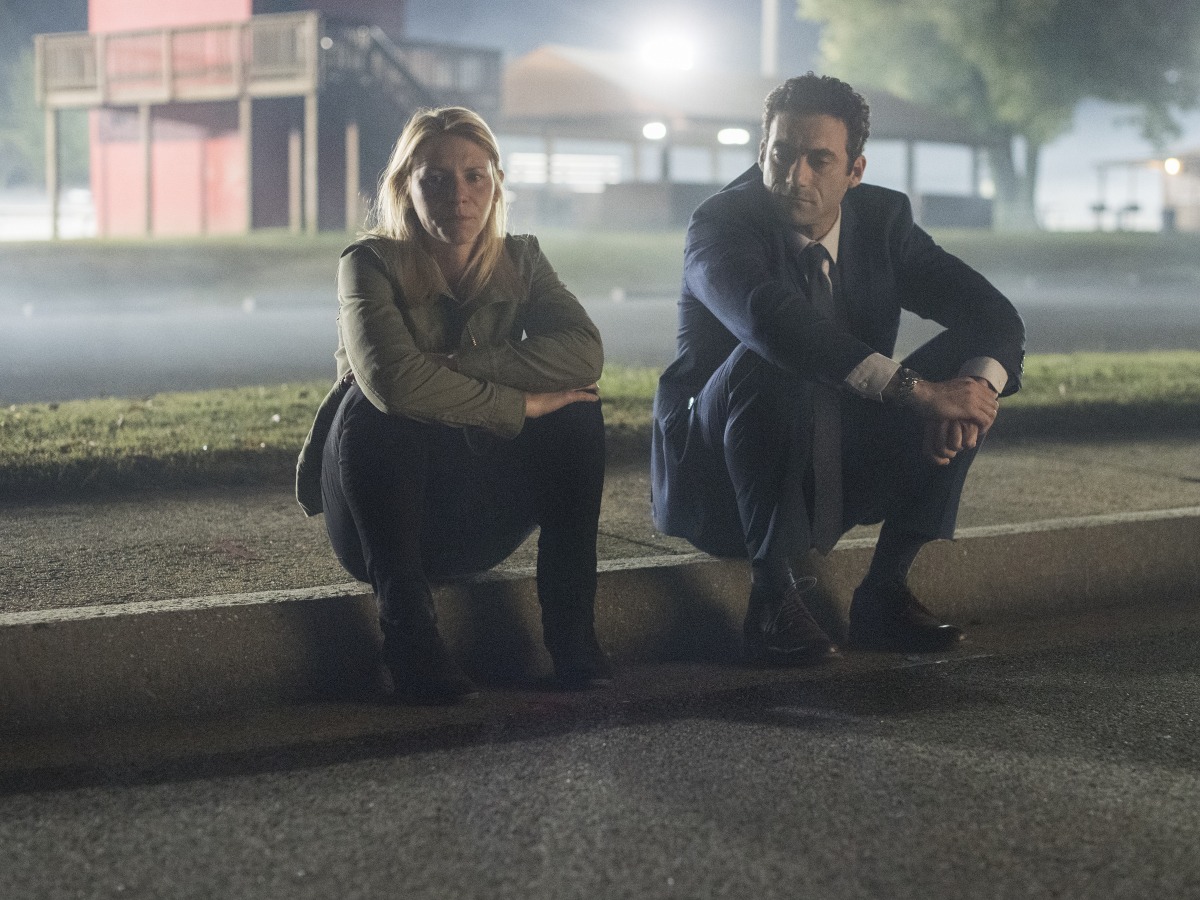Homeland (2011)

Homeland is a critically acclaimed American television series that combines elements of espionage, political drama, and psychological thriller. Developed by Howard Gordon and Alex Gansa, the series is an adaptation of the Israeli series Prisoners of War (Hatufim), created by Gideon Raff, who also served as an executive producer on Homeland. Premiering on Showtime in 2011, Homeland quickly became one of the most talked-about shows on television, praised for its intense storytelling, complex characters, and exploration of timely themes such as national security, political intrigue, and the psychological toll of war. Over the course of eight seasons, Homeland captivated audiences with its multifaceted portrayal of intelligence work, personal conflict, and the fine line between patriotism and paranoia.
At the core of Homeland is the relationship between two central characters: Carrie Mathison (played by Claire Danes), a brilliant but troubled CIA officer, and Nicholas Brody (played by Damian Lewis), a U.S. Marine Corps sergeant who has been held captive by al-Qaeda for eight years and is believed to have been radicalized during his captivity. The series begins with Carrie receiving a tip from a source within the intelligence community that Brody, upon his return from captivity, may have been turned by the enemy and could be plotting a terrorist attack on American soil.
As the story unfolds, Homeland explores the complex and often morally ambiguous world of intelligence work. Carrie, who suffers from bipolar disorder, becomes obsessed with the idea that Brody has been compromised and may be working as a sleeper agent for al-Qaeda. Despite resistance from her superiors and the lack of hard evidence, Carrie embarks on a personal mission to uncover the truth about Brody. This sets off a chain of events that spans multiple seasons, where the stakes continually rise, and the line between friend and foe becomes increasingly blurred.
As Carrie works to uncover Brody’s secrets, the show delves into the psychological strain of living in a post-9/11 world, where trust is in short supply, and the threat of terrorism feels ever-present. Over the years, the characters of Homeland grapple with questions of loyalty, identity, and the blurred boundaries between right and wrong. The series also examines the emotional and psychological toll of the war on terror on both the agents who fight it and the individuals who are caught in its crosshairs.
One of the central themes of Homeland is the tension between national security and personal freedom, a theme that resonates particularly in the post-9/11 context. The series focuses heavily on the intelligence community’s role in protecting America from terrorist threats, showing both the human cost and the ethical dilemmas associated with counterterrorism operations. The show presents the CIA as a morally complex institution, where agents are forced to make difficult choices, often at the expense of personal relationships and their own sense of morality.
Carrie Mathison, as the show’s protagonist, embodies the internal conflict between patriotism and personal sacrifice. Her dedication to protecting the nation and her obsession with uncovering the truth often lead her to take drastic, sometimes reckless actions, creating a constant tension between her personal and professional lives. Carrie’s struggles with her bipolar disorder further complicate her ability to navigate the murky waters of espionage, often raising the question of whether she is the brilliant analyst she believes herself to be, or whether her condition is clouding her judgment.
The series also tackles the notion of surveillance and the ethics of intelligence gathering. It raises questions about how far government agencies should go in the name of security and whether the ends justify the means. As characters become entangled in webs of deception and manipulation, Homeland asks uncomfortable questions about the limits of state power, surveillance, and the potential for abuse in the name of protecting citizens.
While espionage is at the heart of Homeland, the show also delves deeply into the personal lives and conflicts of its characters. The relationships between the intelligence officers, their families, and the suspects they are investigating are central to the narrative. The tension between personal and professional lives is especially prominent in Carrie’s character arc, as her emotional instability often puts her at odds with her superiors and colleagues. Her affair with Nicholas Brody is another example of the personal conflict that defines much of the series, blurring the lines between professional duty and emotional attachment.
Brody’s character is equally complex, torn between his loyalty to his country and the psychological scars of his years in captivity. As a former prisoner of war, Brody is a deeply conflicted character. His struggle to reintegrate into civilian life while dealing with his trauma is explored in-depth, and the series paints a nuanced picture of the psychological toll of war on soldiers. Brody’s transformation over the course of the series—from a heroic soldier to a man whose motivations and loyalties are constantly in question—mirrors the central theme of identity crisis that runs throughout Homeland.
In addition to Carrie and Brody, the show also features a strong supporting cast of characters, many of whom are caught in the web of espionage and political maneuvering. Saul Berenson (played by Mandy Patinkin), Carrie’s mentor and the CIA’s chief of operations, serves as a moral counterbalance to Carrie’s impulsive behavior, offering wisdom and perspective as she navigates her complex cases. The relationship between Carrie and Saul is one of the most enduring and compelling aspects of the series, representing the delicate balance between loyalty to a cause and loyalty to a friend.
Homeland is notable for its deep psychological and emotional exploration of its characters. Carrie Mathison is one of the most complex and compelling female characters in television, a woman whose brilliance is overshadowed by her emotional and mental instability. Claire Danes’ portrayal of Carrie, particularly in her moments of manic intensity and vulnerability, has been widely praised, earning her multiple awards, including several Primetime Emmy Awards for Outstanding Lead Actress in a Drama Series.
The portrayal of Carrie’s bipolar disorder is central to the series, offering a nuanced exploration of mental health and its impact on both personal and professional life. Carrie’s internal struggles are mirrored by the external conflicts she faces in her work as a CIA officer. Her moments of vulnerability, confusion, and obsession create a compelling character arc that is both heartbreaking and inspiring.
In addition to Carrie, Homeland also examines the psychological toll of war on other characters, particularly Nicholas Brody. His journey from soldier to suspected terrorist is driven by deep emotional and psychological scars from his years in captivity. The series does an excellent job of showing the long-term effects of trauma, especially the moral ambiguity of Brody’s actions. His psychological conflict between his loyalty to the United States and his sense of betrayal toward the country’s role in his captivity is explored in ways that keep the audience questioning his true intentions.
While Homeland focuses primarily on U.S. counterterrorism efforts, it also paints a broader picture of global political dynamics and the complexities of international relations. The series touches on the United States’ relationships with the Middle East, the challenges of combating terrorism, and the difficulty of navigating alliances with sometimes questionable governments. As the story progresses, Homeland expands its geopolitical scope, with characters interacting with intelligence agencies from around the world. This global context enriches the narrative, showing that the war on terror is not only fought on U.S. soil but is a worldwide conflict with far-reaching consequences.
The series also portrays the interconnectedness of the intelligence community, showing how personal vendettas, political maneuvering, and intelligence failures can have international ramifications. The show’s focus on political intrigue and covert operations reflects the high-stakes nature of modern espionage, where the lines between good and evil are often blurred, and decisions made by a few individuals can impact the lives of millions.
Homeland received widespread critical acclaim for its writing, acting, and its ability to engage with contemporary political and social issues. It won numerous awards, including multiple Golden Globe Awards and Primetime Emmys. The show’s success can be attributed to its intricate plotting, morally ambiguous characters, and the intensity of its performances, particularly Claire Danes’ portrayal of Carrie Mathison. It also resonated with audiences due to its timely exploration of global security issues, particularly the post-9/11 landscape and the ongoing fight against terrorism.
However, as the series progressed, some critics and fans felt that the show lost some of its sharp focus, particularly in later seasons. Despite this, Homeland remained a powerful and relevant commentary on modern warfare, terrorism, and the psychological consequences of conflict. It became a touchstone for discussions about the nature of national security, the ethics of intelligence work, and the impact of personal trauma.
Homeland is a groundbreaking television series that offers a tense and emotionally charged exploration of the world of espionage, counterterrorism, and the personal toll of war. Through its complex characters, intense plotting, and timely themes, it kept audiences on the edge of their seats for eight seasons. The portrayal of Carrie Mathison, a brilliant but troubled CIA officer, remains one of the most compelling and multi-dimensional character studies in television history. Homeland not only provided thrilling drama but also raised important questions about loyalty, morality, and the human cost of fighting terrorism. It is a series that captured the zeitgeist of the post-9/11 world and left a lasting impact on the genre of political thrillers.














